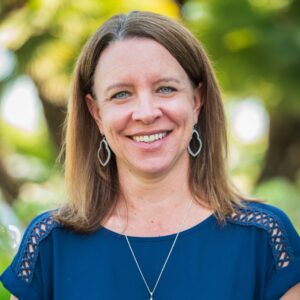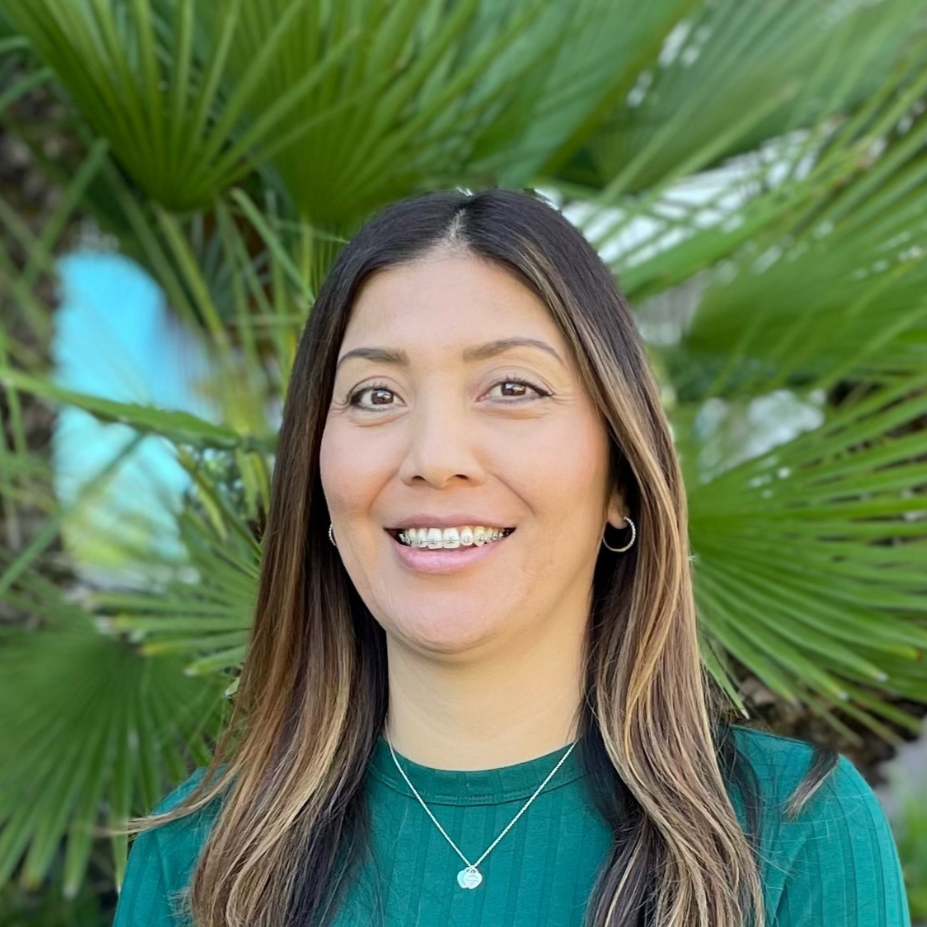The LMSV Learning Support Team is dedicated to serving our students, teachers, staff and families to improve student learning outcomes. The Learning Support Team provides training and professional learning around curriculum and our district-wide instructional programs for principals, teachers, staff and parents. Additionally, the Learning Support Team provides support and oversight for state and local student testing, which includes Smarter Balanced Assessments, Physical Fitness Gram, PACE/GATE, i-Ready and more. The Learning Support Team is here to provide support at all times.

Director, Learning Support
Lydia Burgos
(619) 668-5700 x6421
lydia.burgos@lmsvschools.org

Director, Learning Support
Julie Bankes
(619) 668-5700 x 6370
julie.bankes@lmsvschools.org

Administrative Assistant
Veronica Flores
(619) 668-5700

Office Assistant
Katrina Morton
(619) 668-5700 x 6402
katrina.morton@lmsvschools.org
Assessment
The La Mesa-Spring Valley Schools Assessment Team coordinates the dissemination and administration of:
State-mandated Assessments
California Assessment of Student Performance and Progress (CAASPP):
- Smarter Balanced Assessments in English Language Arts and Mathematics (SBAC) in Grades 3 – 8
- California Science Test (CAST) in Grades 5 and 8
- California Alternative Assessments in English Language Arts and Mathematics in Grades 3 – 8 and Science (CAA) in Grades 5 and 8
- English Language Proficiency Assessments for California (ELPAC) for English Learners in Grades K – 8
- Physical Fitness Test (PFT) in Grades 5 and 7
District Assessments
- District Assessment for Program Acceleration and Enrichment (PACE) in Grade 2
- Benchmarks in English Language Arts and Mathematics in Grades K – 8
- i-Ready Diagnostic Assessment
The Assessment Team also supports schools in the collection, analysis and reporting of student academic data, professional development, and program evaluation.
Resources
California Healthy Youth Act – Sexual Health Education
What is the California Healthy Youth Act?
California state law, the California Healthy Youth Act (AB 329) requires that comprehensive sexual health education and HIV prevention education be provided to students at least once in middle school and once in high school, starting in grade 7.
The law spells out five primary goals:
- To provide pupils with the knowledge and skills necessary to protect their sexual and reproductive health from HIV and other sexually transmitted infections and unintended pregnancy;
- To provide pupils with the knowledge and skills they need to develop healthy attitudes concerning adolescent growth and development, body image, gender, sexual orientation, relationships, marriage, and family;
- To promote an understanding of sexuality as a normal part of human development;
- To ensure pupils receive integrated, comprehensive, accurate, and unbiased sexual health and HIV prevention instruction and provide educators with clear tools and guidance to accomplish that end;
- To provide pupils with the knowledge and skills necessary to have healthy, positive, and safe relationships and behaviors.
What must be included in the instruction?
Instruction must encourage students to communicate with parents, guardians or other trusted adults about human sexuality. Instruction must be medically accurate, age‐appropriate and inclusive of all students. It must include the following:
- Information about HIV and other sexually transmitted infections (STIs), including transmission, FDA approved methods to prevent HIV and STIs, and treatment.
- Information that abstinence is the only certain way to prevent unintended pregnancy, HIV and other STIs, and information about the value of delaying sexual activity.
- Discussion about social views of HIV and AIDS.
- The value of committed relationships such as marriage.
- Information about accessing resources for sexual and reproductive health care.
- Information about pregnancy, including FDA-approved prevention methods, pregnancy outcomes, prenatal care, and the newborn safe surrender law.
- Information about sexual orientation and gender, including the harm of negative stereotypes.
- Information about healthy relationships, avoiding unhealthy behaviors and situations.
- Information about sexual harassment, assault, abuse and human trafficking.
Are schools required to teach comprehensive sexual health education and HIV prevention education?
Yes. The California Healthy Youth Act requires that students in grades 7-12 receive comprehensive sexual health education and HIV prevention education at least once in middle school and once in high school. The Education Code defines comprehensive sexual health education as “education regarding human development and sexuality, including education on pregnancy, contraception, and sexually transmitted infections” (EC § 51931(b)) and HIV prevention education as “instruction on the nature of human immunodeficiency virus (HIV) and AIDS, methods of transmission, strategies to reduce the risk of HIV infection, and social and public health issues related to HIV and AIDS” (EC § 51931(d)).
Can parents opt out of sex education lessons?
Yes. The law makes it clear that parents can opt their children out of comprehensive sex education. According to the language in AB 329, “The Legislature recognizes that while parents and guardians overwhelmingly support medically accurate, comprehensive sex education, parents and guardians have the ultimate responsibility for imparting values regarding human sexuality to their children.” Parents should write or email their child’s science teacher to opt-out of instruction.
What curriculum will be taught?
La Mesa-Spring Valley School Board adopted Positive Prevention Plus in February 2023. The Upper Elementary edition is used in 6th grade, and the Middle School edition is used in 7th grade.
Will parents be able to view adopted materials prior to instruction?
Yes. All materials will be available for parents to view at least two weeks before instruction. Parents should contact their student’s science teacher to schedule a preview.
Are districts required to use the California Health Education Framework when developing lessons for students?
No. The Health Education Framework is a guidance document for teachers and administrators in implementing California’s K-12 health standards. There are no mandates that require schools to use the Health Education Framework.
Will boys and girls be segregated during this instruction?
No. At the secondary level (both middle and high school), the law requires integrated instruction.
Does the law require the teachers to be trained?
Yes. Comprehensive sexual health and HIV prevention education must be taught by instructors trained in the appropriate courses. (EC §§ 51934(a), (b).) This means that instructors must have knowledge of the most recent medically accurate research on human sexuality, healthy relationships, pregnancy, and HIV and other sexually transmitted infections. (EC § 51931(e).)
Where should I direct further questions?
Your student’s school site administrator will be able to provide clear and specific answers to questions regarding materials preview and timelines for instruction. If you need additional information, please contact the Learning Support Department at the District Office.
Parent/Caregiver Notification & Rights
Parents and guardians are notified that their child will be receiving comprehensive sexual health education at least two weeks prior to the start of instruction.
Parents and guardians have the right to opt their child out of instruction by writing a note or email to their child’s science teacher.
Parents and guardians can view all sexual health materials by arranging a preview with their child’s teacher.
P.A.C.E. – Program for Acceleration, Challenge, and Enrichment
La Mesa – Spring Valley Schools PACE supports the fundamental belief all students should receive educational experiences that help make the most of their potential.
PACE Objectives
- There is diversity of talents in the academic and the arts.
- Students demonstrate a range of exemplary talents.
- There is need for a variety of educational approaches, experiences, activities, strategies, and resources.
- Strong partnerships between school, family, and the community are essential elements of individual student success.
PACE Identification
Every second-grader in the District is screened for PACE. Parent permission is required prior to identification. Teachers, Parents, and counselors may refer older students for the PACE screening in January.
Adopted Curriculum
| English/Language Arts | Houghton Mifflin Harcourt—Journeys (TK) McGraw-Hill—Wonders (K-6) McGraw-Hill—StudySync (7-8) |
| Math | Houghton Mifflin Harcourt—Math Expressions (K-5) CPM (6-8) |
| Science | Carolina – Carolina 3D Science – (K-5) Amplify Science (6-8) |
| History/Social Science | Studies Weekly (K-5) National Geographic (6-8) |
| English Language Development | Scholastic—PreK On My Way (TK) McGraw-Hill—Wonders-English Language Development Program (K-6) McGraw-Hill—StudySync English Language Development Program (7-8) |
| Reading Intervention | McGraw-Hill—FLEX (4-8) |
| Spanish | Vista Higher Learning – Senderos (7-8) |
| Adolescent Health and Development | Positive Prevention Plus (Middle School Editions) |

